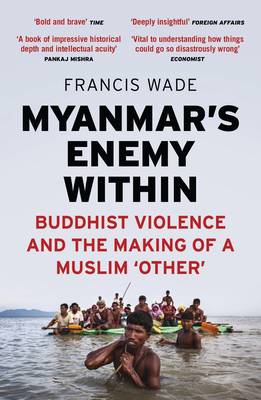
- Retrait gratuit dans votre magasin Club
- 7.000.000 titres dans notre catalogue
- Payer en toute sécurité
- Toujours un magasin près de chez vous
- Retrait gratuit dans votre magasin Club
- 7.000.000 titres dans notre catalogue
- Payer en toute sécurité
- Toujours un magasin près de chez vous
97,95 €
+ 195 points
Format
Description
For decades Myanmar has been portrayed as a case of good citizen versus bad regime - men in jackboots maintaining a suffocating rule over a majority Buddhist population beholden to the ideals of non-violence and tolerance. But in recent years this narrative has been upended.
In June 2012, violence between Buddhists and Muslims erupted in western Myanmar, pointing to a growing divide between religious communities that before had received little attention from the outside world. Attacks on Muslims soon spread across the country, leaving hundreds dead, entire neighbourhoods turned to rubble, and tens of thousands of Muslims confined to internment camps. This violence, breaking out amid the passage to democracy, was spurred on by monks, pro-democracy activists and even politicians. In this gripping and deeply reported account, Francis Wade explores how the manipulation of identities by an anxious ruling elite has laid the foundations for mass violence, and how, in Myanmar's case, some of the most respected and articulate voices for democracy have turned on the Muslim population at a time when the majority of citizens are beginning to experience freedoms unseen for half a century.Spécifications
Parties prenantes
- Auteur(s) :
- Editeur:
Contenu
- Nombre de pages :
- 304
- Langue:
- Anglais
- Collection :
Caractéristiques
- EAN:
- 9781783605286
- Date de parution :
- 15-08-17
- Format:
- Livre relié
- Format numérique:
- Genaaid
- Dimensions :
- 142 mm x 218 mm
- Poids :
- 580 g







